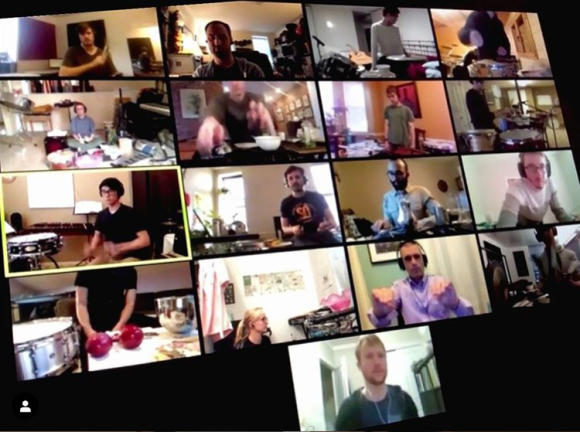The Virtual Shift in Music Education
Conservatories are developing new methods to teach students and conduct performances online

No field has remained unaffected during the coronavirus pandemic, and education is no exception. Music education has been hit particularly hard, as it requires tactile feedback and intense teaching methods that are not easily communicated virtually. The shift to virtual methods of teaching was sudden and forced high level conservatories to completely overhaul their previous learning structures.
At the onset of the pandemic, institutions had to adapt quickly to social distancing measures and quickly moved their curriculum online. “Everything was shifted online almost immediately: academics, classes, as well as individual instruction,” said Vladimir Valjarević, a pianist and professor at Mannes School of Music and the Mason Gross School of the Arts at Rutgers University. “That’s how the school year ended, and that’s how next semester will go as well.” Institutions such as The Juilliard School, Manhattan School of Music and Mannes School of Music will be conducting classes online at least until January 2021.
The shift to online teaching was particularly challenging for one-on-one lessons, as the level of feedback required on performance and methods simply cannot be met by the existing online platforms. “None of the platforms were made for instrument performance,” said Valjarević. “They’re basically made for speaking, so Zoom, Webex, Viber, Whatsapp and wechat [...] some perform a little bit better than others, but all ultimately encounter similar problems.”
None of the platforms could circumvent the level of interaction that individual lessons require, as Valjarević describes: “The fact that we’re not in the room together, the lesson has a different dynamic, a different pace, a different kind of exchange because we’re not in the same place and we’re not responding as quickly off each other’s comments and interactions.”
Conservatories have found solutions to these impediments, however, quickly providing infrastructure and new methods to provide the highest quality of education possible. Manhattan School of Music provides high quality teaching facilities onsite, as Craig Mumm, a violist and professor in the Orchestral Performance Program, describes: “Manahattan School has been doing a lot of distance learning for a long time. So they already had a fancy studio with a large screen, and fast internet connection. They link it up with conservatories or orchestras around the world, and now for private lessons.” Manhattan School of Music has also been prioritizing safety, allowing only staff members inside the building, and requiring masks.
Access to Technology
Valjarević says he’s added separate pre-recorded work to his curriculum to better serve his students, asking his students to send him videos and recordings to allow for a higher visual and sound quality. That enables him to give more calibrated feedback on his students’ progress. “Getting recordings throughout the week, and writing comments works a lot better for me and the students,” said Valjarević.
Virtual learning, has, however, raised issues of disparity between students, some of whom may not have access to the technology or internet connection required for lessons. Mumm says that the level of teaching “depends a lot on the quality of your connection to the internet, and your microphone and camera. If the person has a bad connection, it can be challenging.” He went on to describe the frustration he’s experienced when working with students overseas: “It’s just painful because if they don’t have a good connection, or they’re doing it on an old cellphone, it’s not viable.”
With most institutions implementing online classes in the fall, virtual learning will continue, and for some aspects of classical music education, that’s exciting. Living in another country won’t be a barrier to attending masterclasses - instrumental lessons held before an audience - and collaboration will be much easier. “I’m sure there will be a lot more online components going forward,” said Valjarević “I will be teaching at a virtual music festival in August, and I gave a virtual masterclass, which was a first.”
Mumm describes a similar advancement at Manhattan School of Music: “MSM has been doing remote learning for years and they’ve been doing a lot more recently. People from the Berlin Philharmonic, and Israel Philharmonic come on and teach. They work really well.”
As music moves forward, so will the virtual aspects, and it’s unlikely that things will return to what they were after the pandemic has ended. Classes will be more accessible, and teachers will adopt new methods. As Valjarević put it, “Now is the time for re-imagining everything.”
“Now is the time for re-imagining everything.” Pianist and professor Vladimir Valjarević